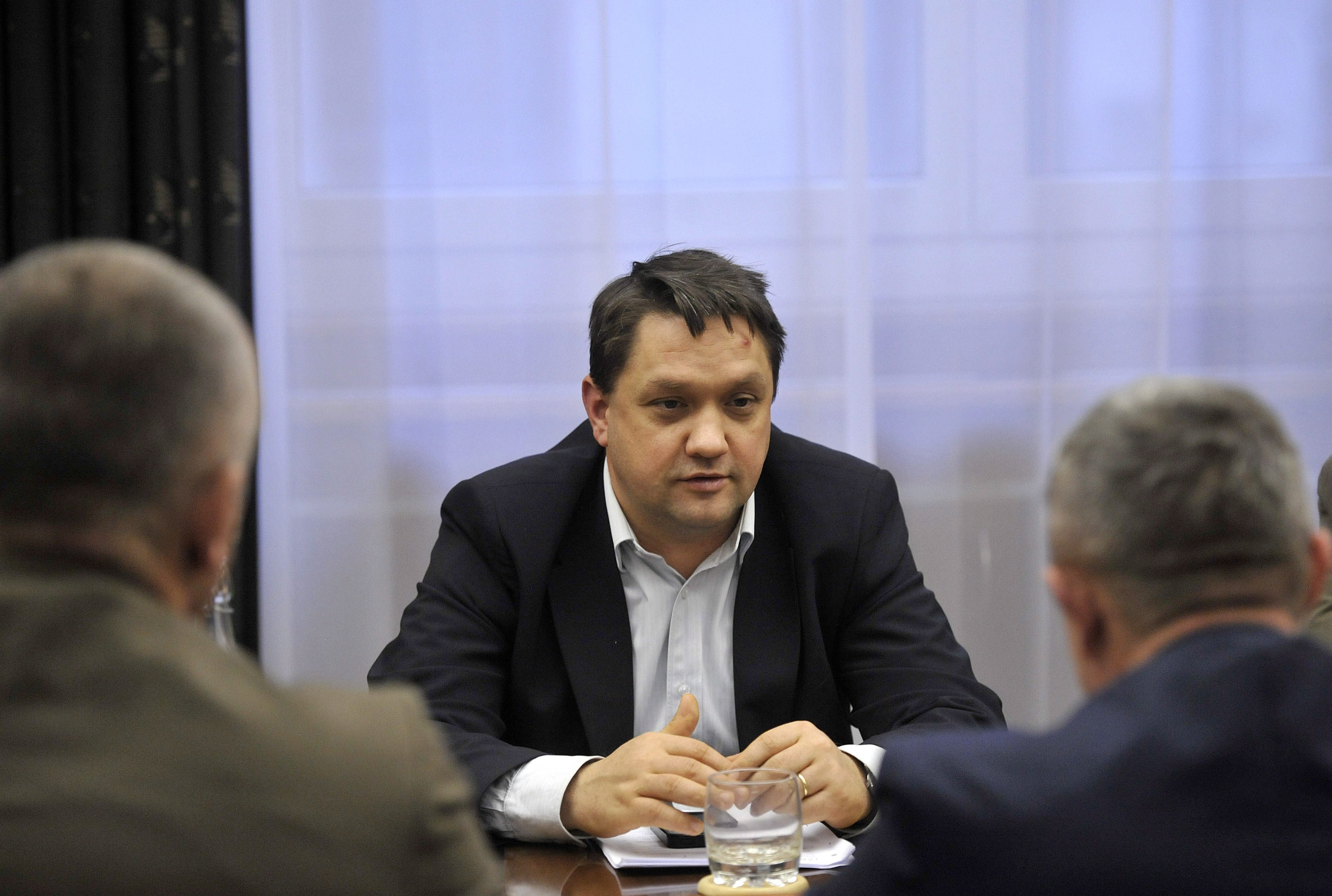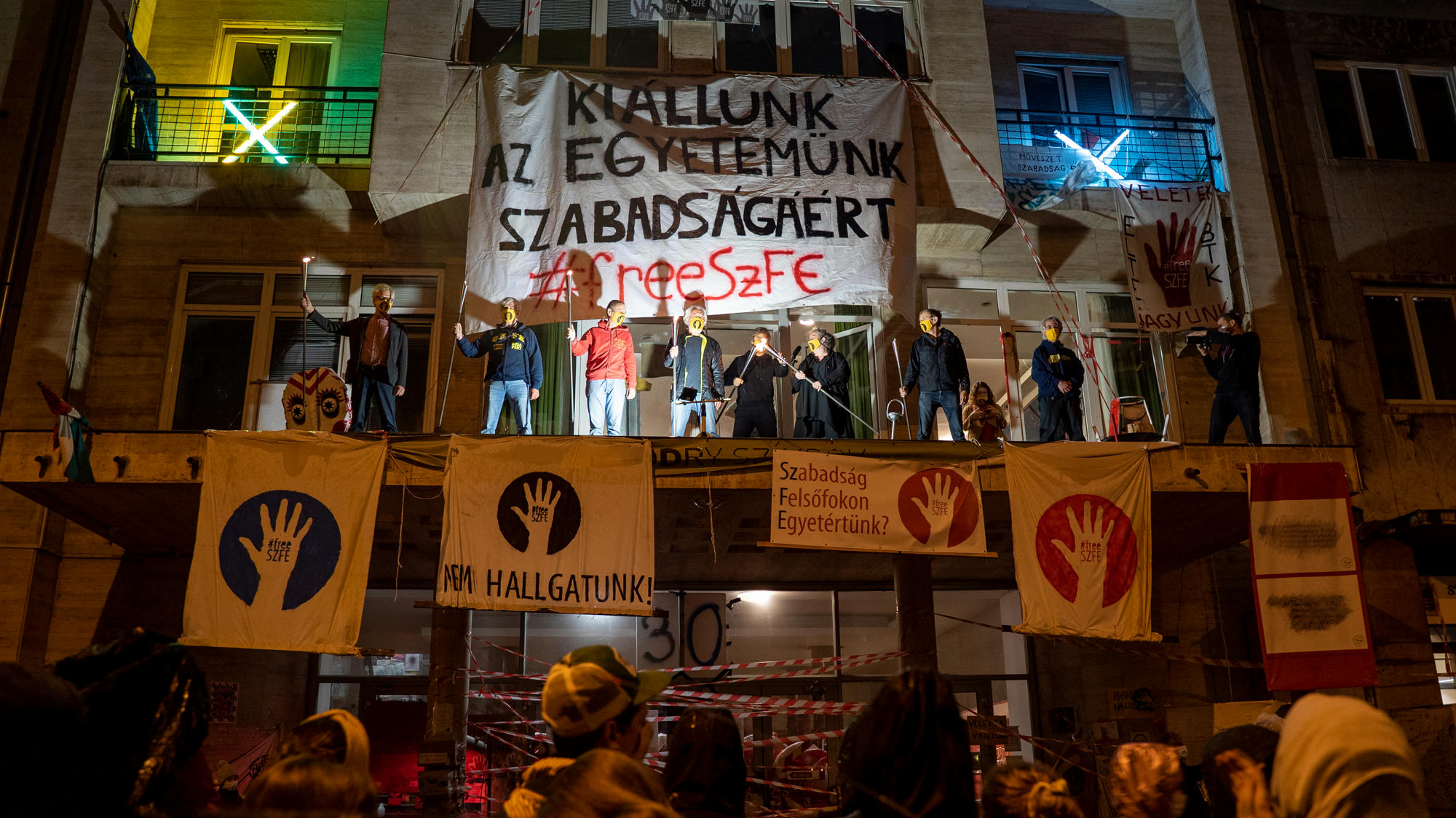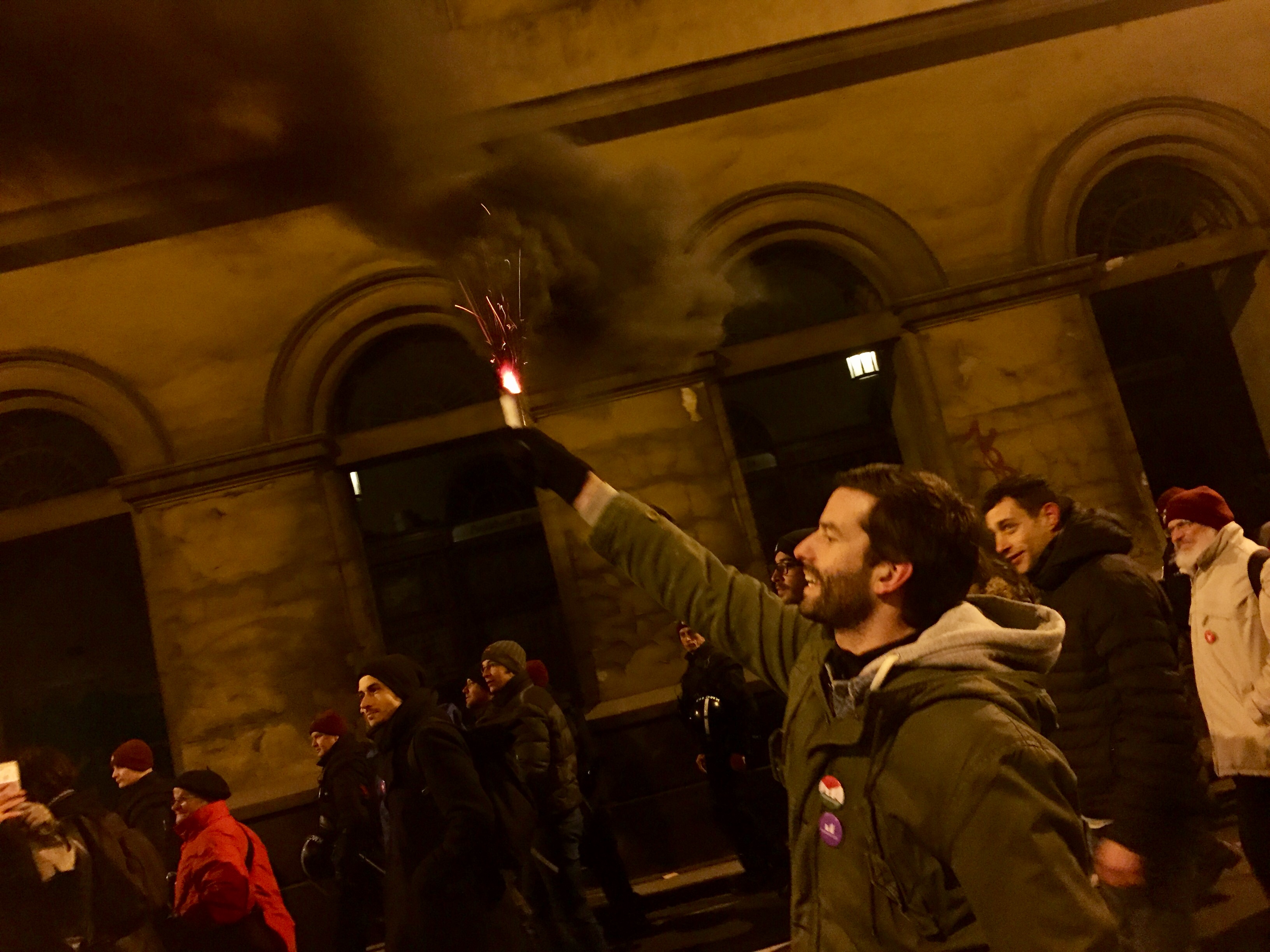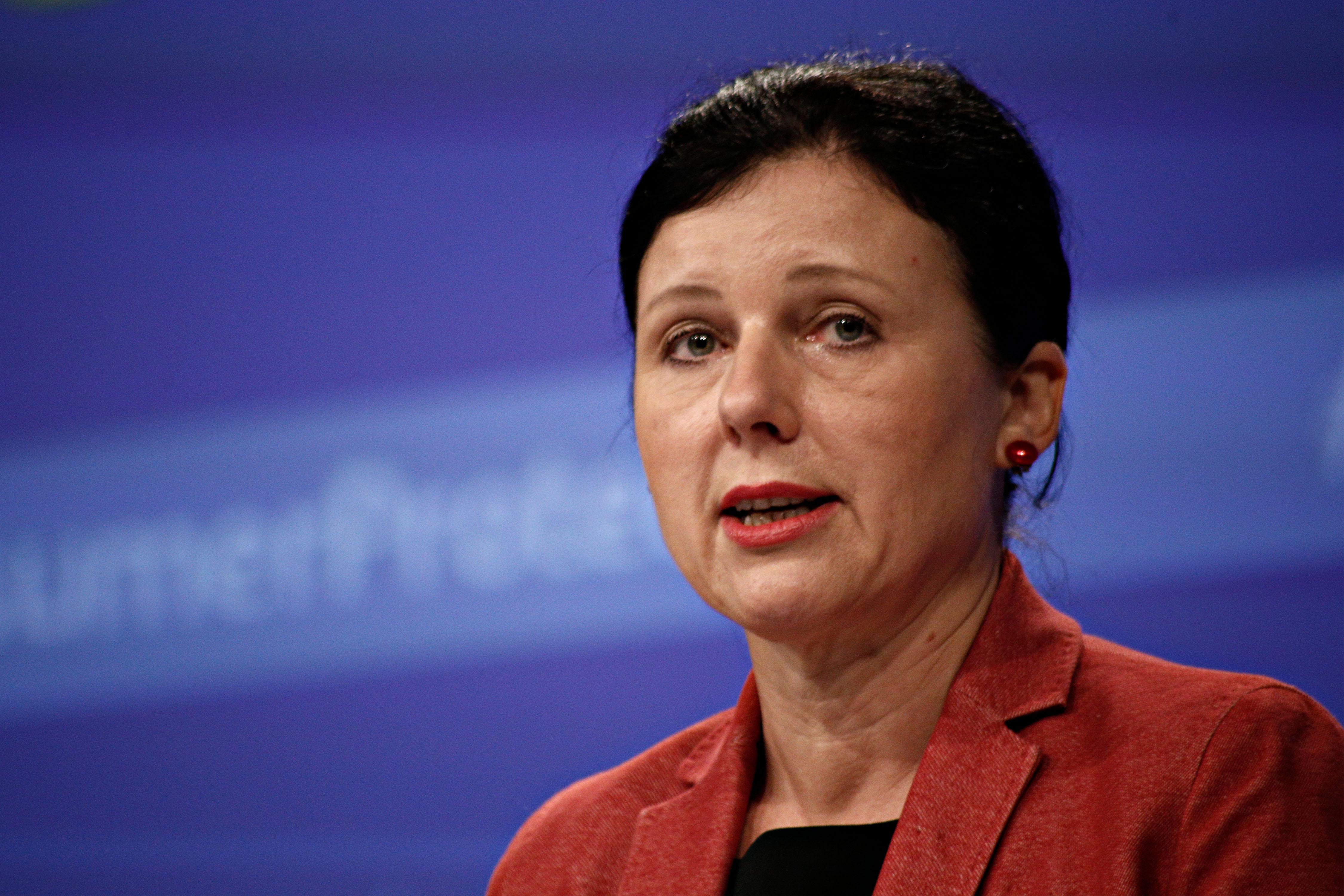Military colonel appointed chancellor of Budapest's University of Theatre and Film Arts
- Stay updated on the latest news from Hungary by signing up for the free InsightHungary newsletter:
A Hungarian military colonel and defense policy expert was appointed on Tuesday to head the University of Theatre and Film Arts (SzFE) in Budapest.
Col. Gábor Szarka, former Chief of Staff to the Minister of Defense in the second Orbán government, was appointed chancellor of the arts university by a board of directors recently installed by the government. Szarka graduated from the military academy as a mechanized infantry officer, and from 2013 represented the Hungarian government in Paris as a military attaché.

Following his appointment, SzFE students blocked Szarka from entering the campus, a continuation of the month-long occupation and blockade of the university in response to an intensifying conflict between students and professors and the new board of directors. Students maintained that they consider the board illegitimate, and vowed to continue the blockade against all new leadership until their demands for autonomy are met.
On Wednesday night, one month after occupying a campus building on Vas Street in Budapest, students placed another building under blockade. A student forum voted Wednesday night to occupy the film faculty building on Szentkirályi Street after the university's previous leadership - including the acting rector, deputy rector, and the heads of each of the university's faculties - joined a student demonstration as their mandates expired following their resignations in August.
As we reported earlier, the resignations and subsequent occupations came in response to a new government-imposed management model which saw the university's democratically-elected senate stripped of its powers and replaced with a board of directors stacked with government appointees.
After being denied entry to the campus, Col. Szarka threatened to withhold wages from university staff until he was permitted into the building.
Meanwhile, more than half of the university's professors began a strike on Thursday, demanding the reinstatement of the senate's powers, guarantees to academic autonomy and the right to democratically select leaders. The striking professors said they would continue to be present on the campus, joining students on guard duty shifts at the windows, roof and corridors of the buildings.
Last Friday, the new board of directors asked the previous chancellor to provide a list of names of professors that participated in a warning strike last week. The board considers the strike to be unlawful, and said that it would launch classes at another location with different professors if the strike is deemed lawful by a court.
The appointment of a military officer to head the prestigious arts university came after other recent placements of military personnel in non-military contexts. In March, the Ministry of Interior began dispatching "hospital commanders" to oversee hospital operations during the first weeks of the coronavirus pandemic. Special military task forces were also sent to monitor the operations of 140 state and private companies during the pandemic, and more military and law enforcement officers were placed on Hungary's Coronavirus Emergency Task Force than healthcare experts.
Momentum president András Fekete-Győr charged with assaulting police officers at 2018 protest
A Budapest prosecutor has filed charges against Momentum president András Fekete-Győr for an alleged violent assault on police officers at a protest in 2018.
The charges allege that Fekete-Győr threw bottles and a "pyrotechnic device" toward lines of riot police that were blocking protesters from the Parliament during a demonstration against changes to Hungary's labor law in December 2018.
Momentum's 8th district representative Koppány Bendegúz Szarvas was also charged for violence against an official.
"The violent conduct of the accused obstructed police in their lawful proceedings, making it difficult for them to ensure the protection of a building," the charge reads.
Fekete-Győr acknowledged in 2018 that he had thrown a smoke bomb between two lines of police at the demonstration, but argued that "a smoke bomb can't hurt anyone. People are so angry that there are tools which must be used."
The politician's lawyer told 444 that police testimony proved his client's behavior was non-violent, and that no incriminating testimony had been levelled against him.
Orbán demands resignation of EC vice-president Vera Jourová
In a letter to the president of the European Commission on Monday, Prime Minister Viktor Orbán demanded the resignation of EU commissioner for values and transparency Vera Jourová after she made what Orbán called "derogatory public statements" about Hungary.
Orbán's letter to Ursula von der Leyen came after Jourová gave an interview to Der Spiegel magazine in which she said, "Mr Orbán likes to say he is building an illiberal democracy. I would say he is building an ill democracy." Jourová, who is also vice-president of the Commission, also expressed concern over Hungary's media environment, saying it leaves little room for Hungarians to express critical opinions.
"These statements are not only a direct political attack against the democratically elected Government of Hungary that has become commonplace, but also a humiliation to Hungary and the Hungarian people. The former is inappropriate, the latter is unacceptable," Orbán wrote, adding that the Hungarian government would suspend all bilateral political contacts with the commissioner.
The letter came after Justice Minister Judit Varga also called for Jourová's resignation in a tweet on Monday.
An EC spokesperson confirmed that Von der Leyen had received Orbán's letter and would reply, but noted that Jourová continues to have Von der Leyen's "full confidence", suggesting Orbán's request would not be granted.
The conflict comes as the Hungarian government faces off with the European Union over rule of law concerns, an area in which Jourová is one of two competent commissioners. On Wednesday, the Commission released its first ever report assessing the condition of the rule of law in all 27 EU member states. Meanwhile, the European Union is debating a mechanism for tying disbursal of EU funds to rule of law criteria, which the Hungarian government has vehemently opposed.
The government of a member state cutting off contact with an EC vice-president, as Hungary did with Jourová, could threaten basic EU functions and will likely lead to further tensions over ongoing rule of law debates.
European Commission's Rule of Law Report points out Hungary's faults and improvements
The European Commission on Wednesday released its first ever Rule of Law report, a comprehensive assessment of the rule of law situation in each EU member state.
The release of the report came only one day before an EU summit in Brussels, where a debate will take place on establishing rule of law criteria for the disbursal of EU development funds, a measure Hungary opposes.
The report focused on four major rule of law categories in each country: judicial independence, media pluralism, anti-corruption frameworks, and institutional issues related to checks and balances.
In the Commission's 27-page introduction, it points out several primary concerns with respect to the rule of law in Hungary.
Corruption
- While there is prosecution of high-level corruption in some cases, it remains very limited and there appears to be a consistent lack of determined action to start criminal investigations and prosecute corruption cases involving high-level officials or their immediate circle when serious allegations arise
Judicial Independence
- Hungary's independent National Judicial Council faces challenges in counter-balancing the powers of the President of the National Office for the Judiciary. Other concerns relate to new rules allowing for the appointment to the Supreme Court of members of the Constitutional Court, elected by Parliament, outside the normal appointment procedure
Media Pluralism
- Hungary's Media Authority is politicized, and the independence and effectiveness of the Media Council is at risk
- An absence of legislation and transparency in the distribution of state advertising has led to significant amounts of advertising channelled to pro-government outlets, opening the door for the government to exert indirect political influence over the media
- The establishment of the KESMA media conglomerate via the merger of more than 470 government-friendly media outlets, without scrutiny from media and competition authorities, has been seen as a threat to media pluralism. Further concerns have been voiced that a recent takeover [of Index.hu - ed.] might follow a pattern of economic takeover of the remaining independent news media sites
- Restrictions on journalists' activities in Parliament and a smear campaign against two Index.hu reporters in pro-governmental media, far-right media and by means of posters, widely considered to be anti-Semitic, which appeared in Budapest.
Checks and Balances
- A 2017 law on the transparency of foreign-funded civil society organisations is incompatible with the free movement of capital as well as with the right to freedom of association and the rights to protection of private life and personal data.
The report praised Hungary's high level of digitalisation of justice, with a high availability of electronic means as regards online access to published judgements. An improvement was also noted in most recent data concerning perceived judicial independence, which is average among the general public but very low among companies.
The entire report on Hungary can be found in English here.





